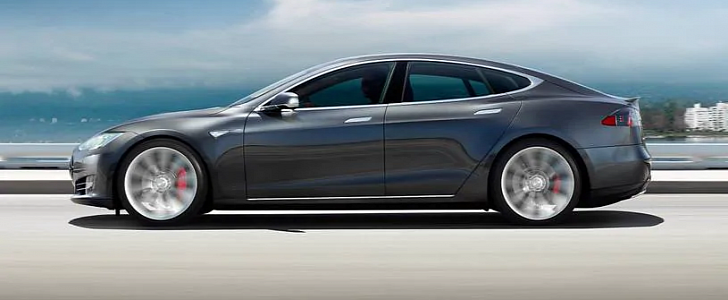As you may already know, the largest economy in Asia and the most populous country in the world intends to become carbon neutral by 2060. According to China's Association of Automobile Manufacturers, conventional gasoline-powered vehicles will have to be replaced by eco-friendly alternatives by the year 2035 for the plan to succeed.
“Hybrid power is the route that should be supported,” said Shi Jianhua, deputy secretary-general of the automotive organization. He added that “it should be a natural process,” partly due to “improvements in the electrification of automotive products.”
At the present moment, the Ministry of Industry and Information Technology doesn’t have a clear road map for the ban on fossil-fuel vehicles without any sort of electrical assistance in favor of hybrids and "new-energy vehicles." Be that as it may, 15 years is sufficient time for China’s automotive industry to switch to cleaner powertrains.
New-energy vehicles include plug-in hybrids, EVs, and FCVs. Shi Jianhua expects hybrid power to account for half of the market by 2035 and NEVs will make up the other half. Of course, this guesstimate can only happen if the government agrees to ban conventional gas-powered cars to reduce the People Republic's carbon footprint.
We also have to remember how important the Middle Kingdom is on the global scene, accounting for half of new-energy vehicle sales worldwide. The Chinese government also offers incentives for eco-friendly vehicles with two and four wheels for more than a decade now, convincing an increasing number of motorists to make the switch.
Last, but certainly not least, China is one of the most attractive markets for EV manufacturers. Tesla builds the Model 3 electric sedan in Shanghai, and a shipment of 7,000 units is currently in transit to European customers with LFP batteries produced locally by CATL. This particular chemistry contains neither nickel nor cobalt, which are both constrained by the supply chain and more expensive to make.
There’s also Polestar, the go-faster sister brand of Volvo. Owned by the Geely conglomerate, the Sino-Swedish automaker makes two models in the Middle Kingdom and a third one is on the horizon. According to Polestar, the production version of the Precept Concept will be manufactured at an all-new facility in China.
At the present moment, the Ministry of Industry and Information Technology doesn’t have a clear road map for the ban on fossil-fuel vehicles without any sort of electrical assistance in favor of hybrids and "new-energy vehicles." Be that as it may, 15 years is sufficient time for China’s automotive industry to switch to cleaner powertrains.
New-energy vehicles include plug-in hybrids, EVs, and FCVs. Shi Jianhua expects hybrid power to account for half of the market by 2035 and NEVs will make up the other half. Of course, this guesstimate can only happen if the government agrees to ban conventional gas-powered cars to reduce the People Republic's carbon footprint.
We also have to remember how important the Middle Kingdom is on the global scene, accounting for half of new-energy vehicle sales worldwide. The Chinese government also offers incentives for eco-friendly vehicles with two and four wheels for more than a decade now, convincing an increasing number of motorists to make the switch.
Last, but certainly not least, China is one of the most attractive markets for EV manufacturers. Tesla builds the Model 3 electric sedan in Shanghai, and a shipment of 7,000 units is currently in transit to European customers with LFP batteries produced locally by CATL. This particular chemistry contains neither nickel nor cobalt, which are both constrained by the supply chain and more expensive to make.
There’s also Polestar, the go-faster sister brand of Volvo. Owned by the Geely conglomerate, the Sino-Swedish automaker makes two models in the Middle Kingdom and a third one is on the horizon. According to Polestar, the production version of the Precept Concept will be manufactured at an all-new facility in China.











